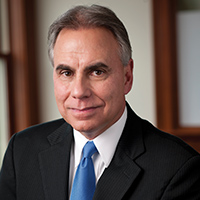The Council of College and Military Educators (CCME), which serves the training and networking needs of military voluntary education professionals, annually hosts a conference for attendees from the Department of Defense (DoD), universities, and members of the Education Service Officer (ESO) community. Overall, this year’s conference was one of the best in some time, mainly due to a robust agenda and the presence of a large number of military and DoD personnel absent for several years previously due to funding issues.
Although many key issues ranging from base access to college affordability were discussed, I found the briefing by DoD education officials on the state of the Voluntary Education Program to be the most informative, and the most startling. Informative, because it provided statistical insight on almost every facet of the Tuition Assistance (TA) program, and startling, due to the reported decline of participation in the DoD TA program. It appears that all of the Services, except Air Force, experienced significant downturns in TA users last year. Although there are many reasonable explanations for this decline (continued deployments, longer duty hours, etc.), many service members and school officials have privately expressed concern that over-prescriptive policies imposed by the DoD and the Services are driving students from the program. From my perspective, these concerns are directly related to how complicated it has become for service members to request tuition assistance. What was once a very simple process has become overly cumbersome for many who use the TA program.
On a more positive note, DoD reported a 94 percent course completion rate by TA users in fiscal year 2014. Interestingly, 41 percent of completions were from private, for-profit institutions; 36 percent from public institutions, and 23 percent from private nonprofit institutions. Additionally, 83 percent of TA users are engaged in some form of distance learning.
As previously mentioned, the conference agenda was exceptional and included contributions by APUS faculty and staff. Informative presentations were given by VP of Research and Development Dr. Phil Ice, (Retention and Graduation Rates for U.S. Military Service members: A Multi-Institutional Cohort Trend Analysis and Innovations in Online Learning); English Program Director Dr. William Overton, (Tactics for Improving Civilian Faculty Communication with Military Students); and Dean of Program Development Dr. Gary Berry and AVP of Transfer Students & Credit Evaluations Jolene Passut, (Rewarding Military Students with Academic Credit for Experience: Institutional Opportunities).
This was a bittersweet conference for me as I near the end, later this year, of a 34-year career serving the military community. During this time, I’ve seen many positive changes to the voluntary education program–100% TA, Post 9/11 Bill and greater opportunities through online education, to name a few. That said, there is always room for further improvement. I believe the future success of military education depends on government officials creating more “student-friendly” policies with accompanying processes that are easier to navigate by service members and the schools they attend.
A former Air Force voluntary education chief once advised me to write education policy for the 98 percent of those who comply with the rules, as opposed to the 2 percent who might try to game the system. In short, keep it simple; sage advice for all to follow.
Jim Sweizer is the Vice President of Military, Veterans, and Community College Outreach at American Public University System. He joined the university in April 2005 after serving over 33 years in the Air Force as an active duty member and civil servant. As Vice President of Military Programs, he oversees all military outreach activities and serves as the main liaison between the university and Department of Defense agencies. Mr. Sweizer has an extensive background in adult continuing education, having served as an education services officer and Chief of the Air Force’s Voluntary Education Program.












